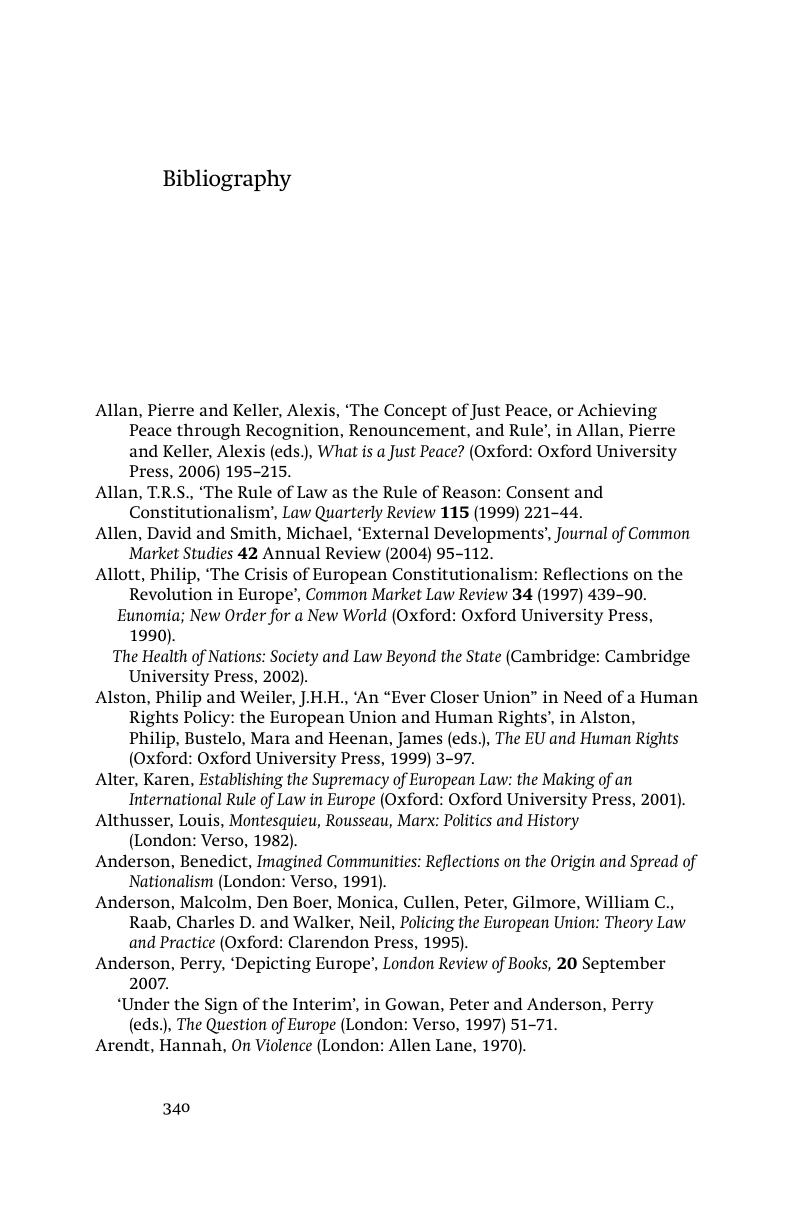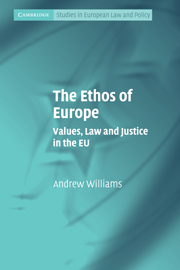Book contents
Bibliography
Published online by Cambridge University Press: 05 June 2012
Summary

- Type
- Chapter
- Information
- The Ethos of EuropeValues, Law and Justice in the EU, pp. 340 - 353Publisher: Cambridge University PressPrint publication year: 2010



